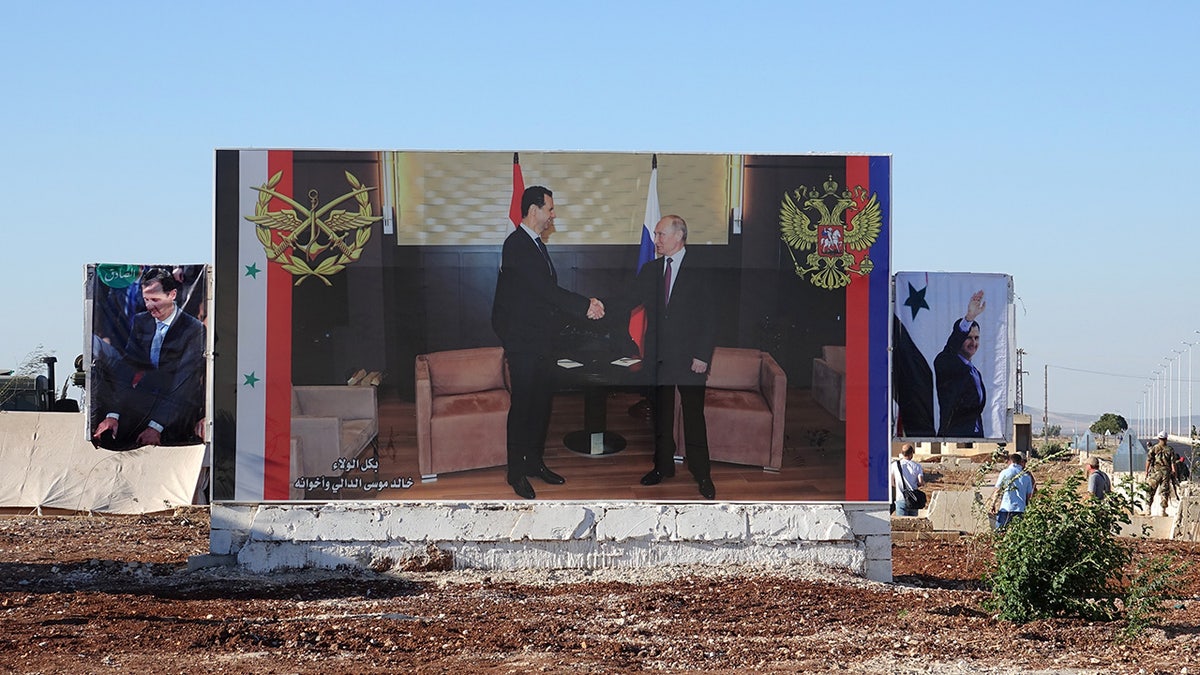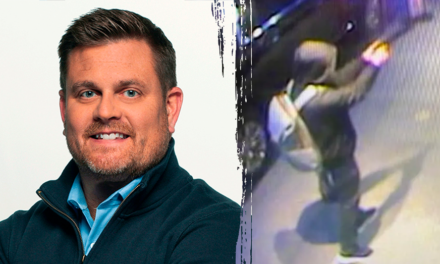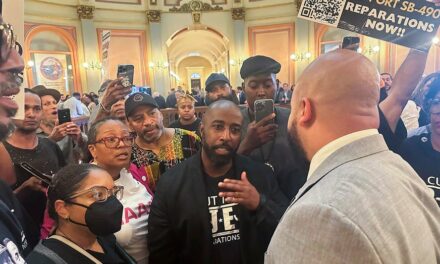We support our Publishers and Content Creators. You can view this story on their website by CLICKING HERE.
The regime of Syrian dictator Bashar al-Assad fell after over 13 years of civil war and nearly 54 years of his family’s dynastic rule.
While many Syrians across the country and members of the Syrian diaspora cheered the downfall of his brutal dictatorship, many in the region and in the U.S. fear what will come of his substantial stockpile of chemical weapons. The Organization for the Prohibition of Chemical Weapons (OPCW) said in a statement that it was monitoring closely the developments in Syria, with “special attention” to the status of its chemical weapons.
Izumi Nakamitsu, the U.N. high representative for Disarmament Affairs, said in a statement on Sunday that Syria’s reported destruction of large quantities of chemical weapons still cannot be verified.
“I reiterate that this is extremely worrying,” Nakamitsu said in a statement.

Members of a chemical weapons investigation team take samples from sand near a part of a missile that is likely to be one of the chemical rockets, according to activists, in the Damascus countryside of Ain Terma, Syria on Aug. 28, 2013. (AP Photo/United Media office of Arbeen)
Secretary of State Antony Blinken said on Sunday that the U.S. will “support international efforts to hold the Assad regime and its backers accountable for atrocities and abuses perpetrated against the Syrian people, including the use of chemical weapons.”
It is unclear what specific chemical weapons Assad had left at the time of his regime crumbling and his fleeing to Moscow. As part of international negotiations following Assad’s use of chemical weapons, Syria joined the Chemical Weapons Convention in 2013 and agreed to destroy over 1,300 tons of chemical warfare material in 2014.
The OPCW said that there remain serious concerns about the completeness of Syria’s initial declaration in 2013 and “the fate of significant amounts of chemical weapons are unaccounted for.”
U.S. Ambassador to the OPCW Nicole Shampaine warned that Syria’s undeclared chemical weapons posed a “proliferation risk.”
Assad was not the only bad actor to use chemical weapons on Syrian civilians. A joint United Nations and OPCW investigation found that the Islamic State conducted chlorine attacks and used sulfur mustard gas in 2015 and 2016. Fears are growing around where exactly Assad’s chemical weapons are hidden and what groups may gain control of them.
Chemical weapons falling into the wrong hands, particularly ISIS or other terrorist groups, would be a worst-case scenario for the region.
ISLAMIST REBELS IN SYRIA CATCH ASSAD, PUTIN, IRAN REGIMES OFF GUARD GIVING US NEW MIDEAST HEADACHE
Hayat Tahrir al-Sham (HTS), the rebel group that led the offensive in the eventual overthrow of Assad, released a statement in its newly created Political Affairs Department, asserting it has no intention of using what’s left of Assad’s chemical weapons and committed to maintaining the security of the sites while working with the international community to monitor the sites.

A large poster in the city of Rastan shows the Syrian head of state Bashar al-Assad, left, and Russian President Vladimir Putin as allies. (Photo by Friedemann Kohler/picture alliance via Getty Images)
Despite the initial positive rhetoric from HTS, there is trepidation among experts and policymakers about how reliable assurances are from a group that once pledged allegiance to al Qaeda. HTS is a designated foreign terrorist organization by the State Department and has a Salafi-Jihadist ideology. The leader of HTS, Abu Mohammed al-Jolani, is wanted, and the FBI is offering up to $10 million for information leading to his capture.
Some experts who closely monitor nuclear weapons proliferation are advocating for the U.S. to join forces with Israel to destroy the remains of Assad’s chemical weapons.
“Israel and the United States must immediately destroy any known, remaining Syrian chemical weapons capabilities, while laying the basis for resumed OPCW inspections and efforts to attribute responsibility for the Assad regime and Russia’s past chemical weapons attacks,” Andrea Stricker, deputy director of Foundation for the Defense of Democracies Nonproliferation and Biodefense Program, told Fox News Digital.
“Allowing such weapons to fall into the wrong hands risks terrorist attacks across the globe if such actors seek to exploit their newfound weaponry,” Stricker added.
ASSAD ARRIVES IN MOSCOW, IS GRANTED ASYLUM BY RUSSIA
Israel already announced that it has conducted strikes on some of Assad’s suspected chemical weapons. So far, the U.S. has conducted dozens of precision air strikes targeting ISIS camps and operatives, striking over 75 targets, according to U.S. Central Command. The U.S. has not yet targeted the Assad regime’s chemical weapons sites.
The HTS statement also noted that the Assad regime used chemical weapons against innocent Syrians during the civil war, and the group sees these weapons as a crime against humanity. One of the most gruesome attacks was in the Damascus suburb of Ghouta in August 2013, when the regime launched rockets carrying sarin gas that killed more than 1,400 people.

Rebel fighters stand near the Iranian Embassy with a torn poster of Hezbollah leader Sayyed Hassan Nasrallah and late Iran’s Revolutionary Guards’ top commander Qassem Soleimani after Syrian rebels announced that they have ousted President Bashar al-Assad, in Damascus, Syria, on Dec. 8, 2024. (REUTERS/Firas Makdesi)
The OPCW concluded in extensive investigations that the Assad regime “definitely or likely” used chemical weapons in at least 17 cases during the civil war. Assad used an array of outlawed chemical weapons on his own people. At his disposal were “nerve agents, such as sarin, choking agents, such as weaponized chlorine, and blister agents, such as sulphur mustard,” according to the Arms Control Association.
CLICK HERE TO GET THE FOX NEWS APP
Then-President Trump ordered military strikes on Syria at the Shayrat Air Base in April 2017, the base from which the Assad regime launched a nerve agent attack, and again in a joint U.S.-UK-French coordinated precision strike in April 2018 against Syrian chemical weapons facilities.

 Conservative
Conservative  Search
Search Trending
Trending Current News
Current News 





